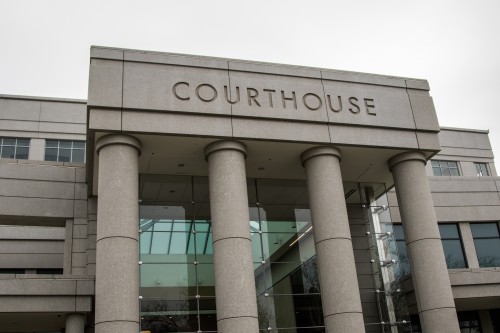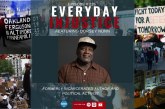 by Antoinnette Borbon
by Antoinnette Borbon
In some of the country’s most infamous cases, like the cases against O.J. Simpson, Michael Jackson and Casey Anthony, to name a few, we’ve been persuaded to believe that money really can buy the best defense.
However I am reminded once again with Tuesday’s verdict (in the Ornellas-Castro case), money has little to do with a great defense. Some attorneys within our public defender’s office can prove to be unsung heroes.
A few cases that come to mind have even made headlines around the nation.
One of the most memorable was the case against Daniel Marsh, showing how a compilation of six different SRIs (serotonin reuptake inhibitors) and habitual use of recreational drugs, coupled with a troubled upbringing, led to tragedy.
A mere 15 years old, overcome with homicidal thoughts and ideations, from the side effects of prescription anti-depressants, Marsh adorned himself in black and set out to silence his thoughts.
Scouring the neighborhood for an open window, Marsh came upon the home of an elderly couple. Marsh told the FBI agent that by the time he had made it to the bedroom with knife in hand, where the couple lay sleeping, “there was no turning back, I knew I had to do something.” It was a force greater than his then, product of a troubled mind that led him to commit a crime most hideous in nature.
It took jurors less than two hours to come back with a guilty verdict of the premeditated murder of the elderly couple.
Ultimately, Daniel Marsh was given 52 years to life in prison.
Chief Supervising Deputy Public Defender Ron Johnson presented a strong defense for Marsh, with plenty of expert witnesses who testified to the side effects of the SRI drugs doctors had prescribed for Daniel.
However, despite Mr. Johnson’s honest efforts, the jury believed Marsh acted willfully and with soundness of mind.
The outcome in the Marsh case troubled many in our community and perhaps across the nation, as it raised a lot of questions regarding the public mental health system. Tragically, Marsh’s pleas to doctors as he begged, “Make them stop, I don’t want to feel this way,” were misunderstood, which led to his demise.
In another case, a more recent case involving the death of an infant, Public Defender Tracie Olson shed an important light into the details of her client’s relationship with a man whose influence led to the woman’s downfall.
After being injected with methamphetamine, finding herself delusional, defendant Samantha Green traveled out to meet her boyfriend near the Knights Landing sloughs. Green told detectives she had been running from a man who had tried to sexually assault her.
With her 19-day-old baby in her arms, Ms. Green crossed the cold waters with the mere light of the moon, dropping her purse and diaper bag along the way. As she reached an embankment, she could only remember setting her infant down and then falling asleep.
She awakened in terror to find her baby not breathing, Green immediately began searching for help.
After a lengthy trial, jurors convicted Ms. Green of second-degree murder.
Although disappointing for Green’s family and Ms. Olson, still the outcome bore good fruit with the arrest of Green’s ex-boyfriend and father of the baby, Frank Rees, in connection to their infant’s death. Accolades to Ms. Olson for exposing crucial information during the trial.
It is cases like these which, even though the outcome may not have been what one hoped for, the attorneys exercised great diligence attempting to achieve a just verdict.
But it raises a question. Would the outcome have been different if these defendants had money for a private attorney?
Does a lesser compensation to the defense attorney mean a lesser defense? For some, the answer is yes.
However, I have witnessed the flipside of that belief system. It is not necessarily what one may have in their pocket book, contrary to belief, that is important.
Consider cases like that of the People v. James Mings, where the “Perry Masonish, no stone unturned defensive style of Public Defender Dan Hutchinson presented a surprising twist towards it’s (sic) tail end for jurors.”
Mr. Hutchinson, who has always exhibited quite an innate ability with jurors, accepts little glory at the end of his trials, and with the verdict of not guilty on Tuesday, once again we get to witness what money cannot buy.
Moreover, the defense’s case proved to a jury panel that, even if they had doubts of innocence, Mr. Hutchinson was successful in raising enough reasonable doubt.
Another infamous case was that of the People v. Stone, where Deputy Public Defender Martha Sequeira defended a man accused of shaking his infant, who later died from injuries. It was she, with Supervising Deputy Public Defender Monica Brushia, who presented one of the most emotionally theatrical trials. But it was all in an honest effort to prove a man’s innocence.
Even though some may have disagreed with the verdict, it brought to light the many issues we have with outdated information on shaken baby syndrome.
With any verdict, a loss for one side is imminent. Deputy District Attorney Matt De Moura and his co-counsel felt that loss, as the verdicts on all counts were read Tuesday in the People v. Ornellas-Castro. DDA De Moura has demonstrated upstanding conduct as well, being forthright and well-spoken in his arguments.
The echoed sentiment when losing a case is that it is never easy for either side. Most attorneys are emotionally, mentally, and physically drained once trials are over.
Nightmares are not uncommon for some attorneys during trial, as the fear of making mistakes can be taxing.
Criminal Defense Attorney Jeff Raven once stated, “Sometimes I wake up in a panic, having an epiphany, I often find out something I’m missing, it’s a good thing.”
Raven, whose work has entailed being a deputy public defender, as well as a conflict panel attorney (called in to be co-counsel when there are co-defendants and the public defender’s office needs to prevent a conflict of interest), while sustaining a small law firm in Yolo and Sacramento Counties, has always believed in the goodness of people, admitting that “out of all the 400 plus cases I have defended, I have only met with one who I felt may have been inherently evil, all the rest have just been good people who by virtue of circumstances or environment led to choices that put them where they are.”
In Monday’s jury selection for a man accused of lewd and lascivious acts against a child, the Vanguard was reminded again just how much an attorney can believe in his/her client’s innocence.
Without lacking sincerity or an honest belief in his client’s innocence, Deputy Public Defender Peter Borruso explained to potential jurors, “I know when you hear these kind of charges, there is a visceral response, it’s understandable,” as he explained to them the allegations against his client.
However, said Mr. Borruso, “he claims they NEVER happened and it is up to me to prove a reasonable doubt.”
Jokingly introducing himself as “Perry Mason” to potential jurors, Mr. Borruso explained that “this a serious case, these are very serious charges and it will be up to you to decide the credibility of the victim and witnesses.
“Sometimes a person can believe something happened and it really didn’t, but you will have to decide if what they are telling you is believable,” stated Mr. Borruso.
The defendant, with bowed head and wiping away falling tears, watched as his attorney addressed the potential jurors.
Mr. Borruso, as most of his colleagues, is another example of what money cannot buy – the quality of possessing a most caring, compassionate and honest belief in his client’s innocence.
Some of the appointed attorneys have a more emotionally spirited demeanor, others are more soft spoken, but none lack the compassion to fight diligently for their client.
Perhaps money can buy a better defense, perhaps not, but for those less fortunate, our public defenders can prove to be unsung heroes.. added to that list are some of the deputy district attorneys who share a like mind, and seek justice.
Heroes come from within the heart, and its intent to do the right thing for the benefit of one less fortunate.





